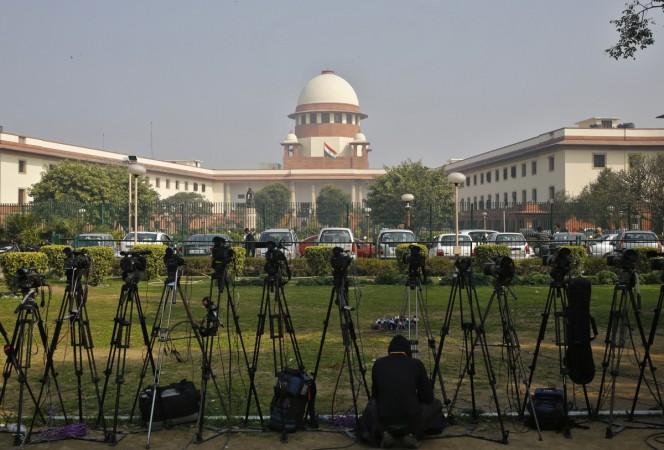The Supreme Court on Wednesday once again refused to stay amendments to the SC/ST Act that restored the no anticipatory bail provision and said all matters including the centre's review petition will be heard on February 19.
A bench headed by Justice UU Lalit said the issue requires hearing in detail and it will be appropriate if all matters are heard on February 19.
The bench refused to stay the amendments to the SC/ST Act after senior advocate Vikas Singh, appearing for one of the petitioners who had challenged the changes made to the Act, sought an immediate stay on it.

The apex court had on January 25 said it will consider listing the centre's review and petitions challenging the amendments to the SC/ST Act 2018, together before an appropriate bench.
The top court had earlier refused to stay the Scheduled Castes and the Scheduled Tribes (Prevention of Atrocities) Amendment Act, 2018 which restored the provision that no anticipatory bail be granted to the accused.
Parliament on August 9 last year had passed a bill to overturn the apex court order relating to certain safeguards against arrest under the SC and ST law.
On March 20, 2018, the apex court had taken note of the rampant misuse of the stringent SC/ST Act against government servants and private individuals and said there would be no immediate arrest on any complaint filed under the law.
The top court had earlier said that the new amendments to the SC/ST law passed by Parliament cannot be stayed and had sought the Centre's response to pleas challenging the provisions.
The pleas have sought a declaration of the new amendments to the Scheduled Castes and Scheduled Tribes (Prevention of Atrocities) Act as ultra vires.
The amendments rule out any provision for anticipatory bail for a person accused of atrocities against SC/STs, notwithstanding any court order.
They provide that no preliminary inquiry will be required for registering a criminal case and an arrest under this law would not be subject to any approval.
The court was hearing the pleas alleging that two Houses of Parliament had "arbitrarily" decided to amend the law and restored the previous provisions in such a manner so that an innocent cannot avail the right of anticipatory bail.








